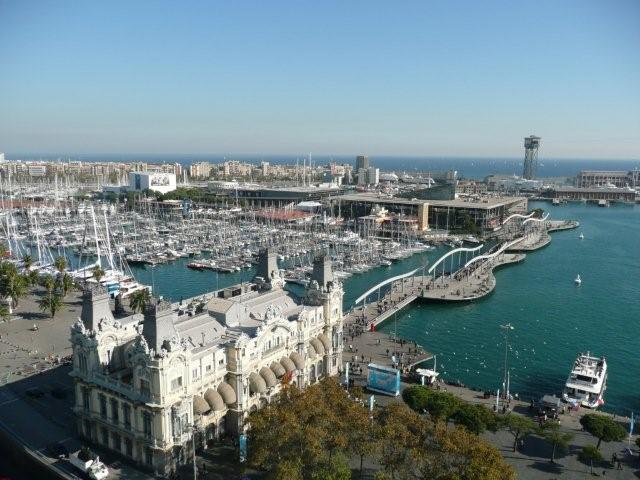| Home | Spain |
Sydney |
San Francisco |
Paris |
Las Vegas |
Maui |
Barcelona, Spain

Barcelona history is fascinating and rich, as shown by its complex culture and architectural marvels. Located along the Mediterranean Sea in northeastern Spain, this coastal city was part of the Catalonian Empire but was ultimately conquered by several invading kingdoms prior to becoming part of Spain. After being founded by the Carthaginians around 230 BC, Barcelona, along with the rest of Catalonia, was invaded by the Roman Army, followed by the Visigoths and the Moors. There are numerous fascinating historical facts about Barcelona, involving the early settlers, invaders, the prosperous medieval period, and the revolutions of the nineteenth century. Catalan history is closely intertwined with that of the Spanish in this part of the Iberian Peninsula, and despite being part of Spain, this region maintains its own culture, and the history of Barcelona Spain emphasizes the area’s great pride in its unique past.
There are actually two stories pertaining to the creation of the city, and these are some of the most interesting facts about Barcelona. The first is the belief that the Carthaginians founded the city, but the second maintains that Barcelona was founded by the Greek hero Hercules 400 years before the founding of Rome. Carthage and its empire fell in the second century BC to the Roman army, and Rome ruled this part of Spain for the next 600 years. Roman architecture, culture, and language flourished in Barcelona, and even today, travelers can find the ancient Roman ruins around the city and recognize the original town center, now the Barri Gotic. In the early fifth century, the Visigoths defeated the Roman army in Spain and made Barcelona their capital. Early in the eighth century, the African Muslims, known as the Moors, conquered Barcelona as well. However, Moorish domination was relatively short-lived when armies led by Charlemagne’s son Louis the Pious reconquered the city in 801 and pushed out the Arabs.
Although the rest of Spain was under the Moorish domination until the fifteenth century, Catalonia remained a part of the Frankish Empire, under King Charlemagne, who united the area with their kingdom. In 878, Guifre el Pilos, Charlemagne's feudal lord, was elected as the Count of Barcelona. Catalan history flourished as the region ultimately declared its independence became a nation-state and allied with the kingdom of Aragon to expand its territories as far as the Pyrenees. Barcelona continued to expand when in the early 1200s, the kings of Catalonia conquered Ibiza and Mallorca, which are today part of Spain’s Canary Islands.
Barcelona history shows that during the middle ages, the city flourished economically and culturally. The city was the key center of scientific knowledge shared between the Christian and the Muslim worlds. Trade and commerce in the Mediterranean were on the rise, which also increased the number of shipyards in Barcelona. Interesting facts about Barcelona from the medieval era revolve around the Catholic kings’ reclamation of Spain from the Moors in the late fifteenth century, around the time Christopher Columbus sailed to North America, in 1492. Upon returning to Spain, he was first received by King Ferdinand and Queen Isabella in Barcelona.
The War of the Spanish Succession, which occurred in the early eighteenth century, marked another important point in Catalan history, as the nobility in Catalonia chose to side with the Hapsburg Empire against King Philip V of Bourbon. Barcelona surrendered to the Bourbon army in 1714, and ultimately Catalonia lost its autonomy and its capital lost much of its influence in Spain.
Nineteenth-century Barcelona history is marked by upheavals, as the 1830s saw the near-extinction of the Catalan language, though it was eventually revived by the European Romantic Movement, when poets and other writers worked to popularize the area’s native culture. In the twentieth century, Barcelona was a center of art, technology, and science, but the Spanish Civil War and the dictatorship of General Francisco Franco were devastating to all of Spain, particularly Barcelona and its environs, which were repeatedly bombed at Franco’s request as a retribution against the Catalan population in Spain. The post-war period saw rapid growth in the economy, and upon General Franco’s death in 1975, the country of Spain reverted to a more democratic government and continues to thrive economically and culturally. The city of Barcelona’s modern and hospitable image was seen worldwide through the 1992 Olympic Games, which the city hosted. Today, Barcelona is one of the most popular tourist destinations in Europe, as it attracts those interested in the city’s history, museums, and beaches, as well as its lively nightlife and unforgettable culture.